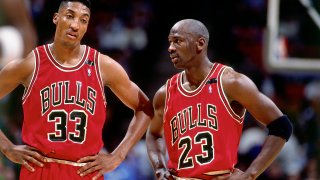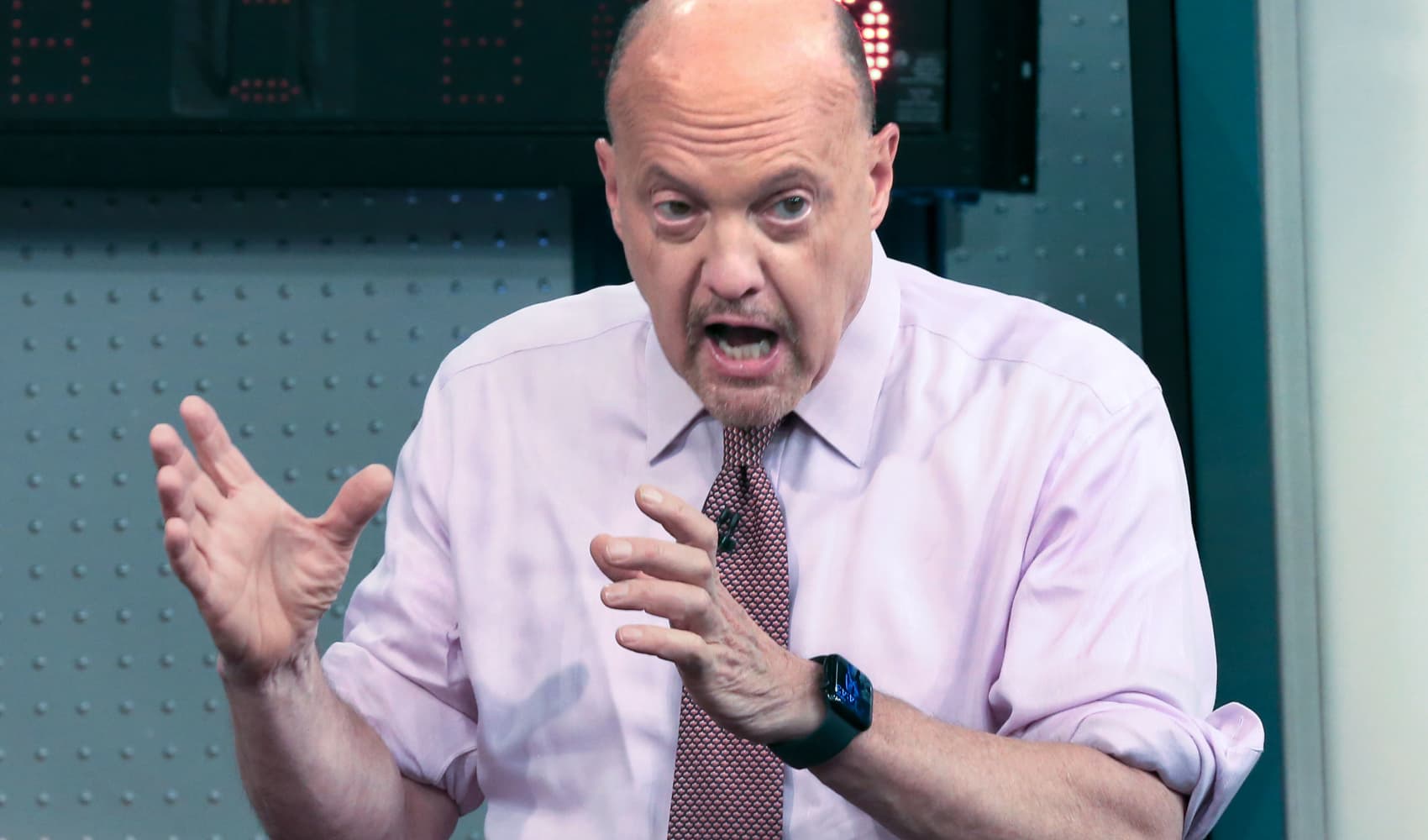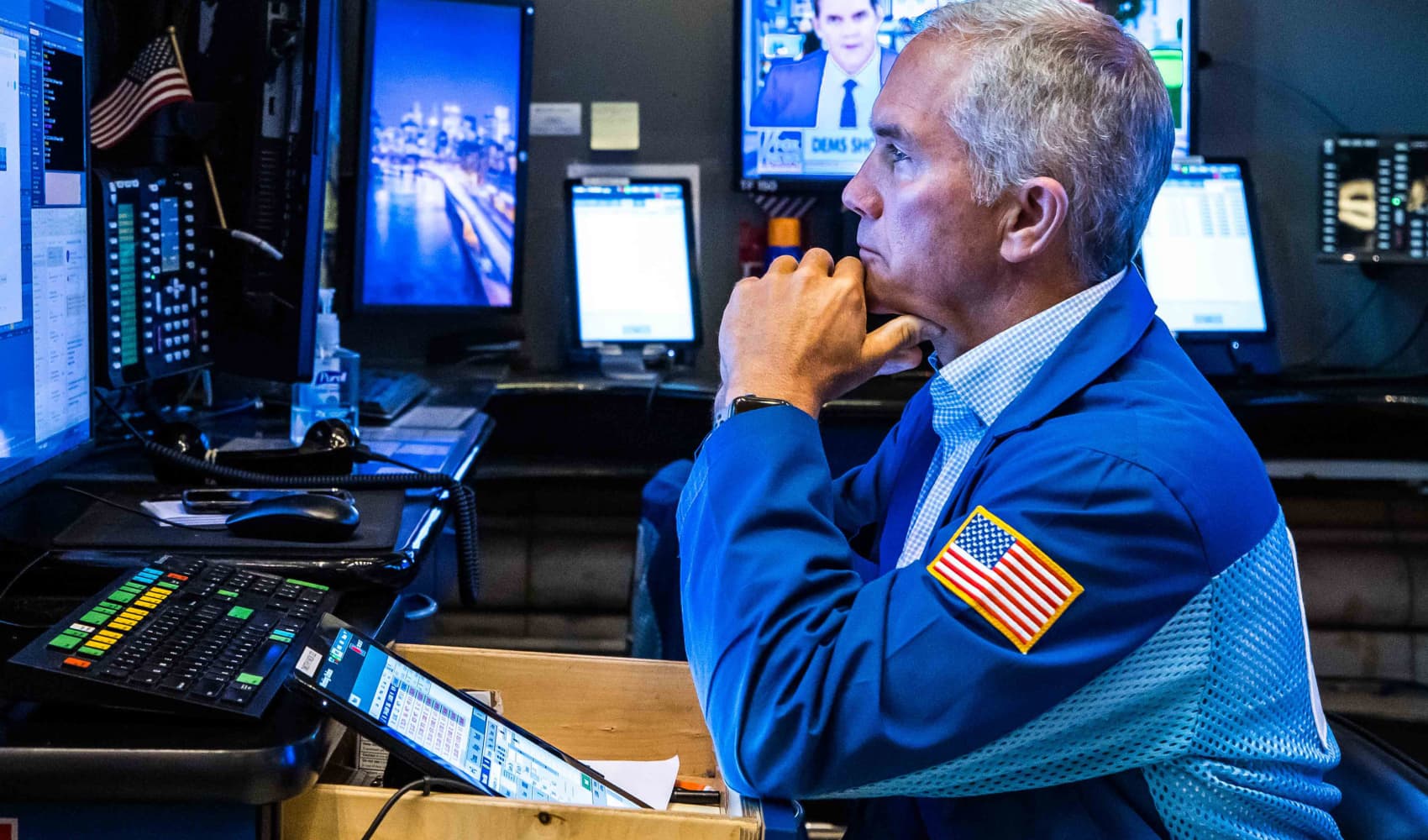
In his 17-season career, NBA Hall of Famer Scottie Pippen won six championships with the Chicago Bulls and two Olympic gold medals and he earned more than $109.9 million, to name a few accomplishments.
But success did not come easy to Pippen.
"Before you start the work, you have to dream and see yourself in this certain place in life," Pippen, 55, tells CNBC Make It.
Growing up in Hamburg, Arkansas, Pippen didn't have much — he was the youngest of 12 children living in a two-bedroom house. What he did have was some talent as a high school point guard, and more importantly, a "will and desire to do better," he says.
Get DFW local news, weather forecasts and entertainment stories to your inbox. Sign up for NBC DFW newsletters.
"I was a dreamer that felt like that I had a purpose and a place that I was going to eventually get to," says Pippen.
One of Pippen's dreams was to play college basketball. Overlooked by most programs, he ended up at the University of Central Arkansas, close to his hometown, with no guarantee that he would play and on a work-study grant.
As a freshman, Pippen worked as team equipment manager, sweeping the gym, picking up basketballs and doing laundry for the players. Don Dyer, then a UCA coach, also let Pippen practice with the team.
Money Report
Eventually, Pippen saw his opportunity to play.
"A few guys [on the team] academically fell off, so some scholarships came available, and I go back, ask the coach. I was very persistent, and he finally gave me a scholarship," Pippen said in the ESPN documentary, "The Last Dance."
By the end of his sophomore year, he was the "best player" on the team, another former UCA coach, Arch Jones, told the Chicago Tribune. In his senior year of college, Pippen — who had a major growth spurt and had gone from 6'1 to 6'8 — was named a Consensus NAIA All-American, averaging 23.6 points, 10 rebounds, and 4.3 assists per game.
Out of college, in 1987, Pippen was drafted in the first round by the Chicago Bulls. But even in the NBA — and after winning six championships with the Bulls — Pippen had to fight to do better. He was consistently underpaid during his time with the Bulls, from 1987-1998, a point highlighted throughout "The Last Dance."
In 1991, Pippen signed one of the worst contracts in NBA history, according to "The Last Dance": a five-year, $18 million deal. During the 1997-98 season, when the Bulls won that sixth championship, Pippen was not even among the top five highest-paid players on the team roster. He was considered one of the top players in the league but was only the 122nd highest-paid player in the NBA. (Pippen earned $2.7 million in salary that year while teammate Michael Jordan was paid more than $33 million.)
After butting heads with the Bulls' then-general manager Jerry Krause for years, Krause finally helped Pippen get the salary Pippen knew he deserved. Krause signed Pippen to a five-year $67 million deal with the Bulls before Pippen was traded to the Houston Rockets. Pippen inked the deal with the Bulls rather than signing a $45 million deal to go to a new team, according to SI.com.
Since retiring from the NBA in 2008, Pippen is still dreaming — this time as an entrepreneur.
"I just decided to sort of change course a little bit," he says. "I'm just starting to get [my] engine ramped up."
Pippen recently announced the launch of his organic, superfood popcorn company Husk Organics and his line of bourbon, Digits.
Pippen is also set to release a new memoir called "Unguarded" in November.
The book will give "pointed and transparent takes" on Michael Jordan, former Bulls coach Phil Jackson and Isiah Thomas, but will also detail Pippen's upbringing, NBC Sports reported.
"What my life has been about...is just believing in me," Pippen says. "I think anyone can achieve a dream if they believe in themselves."
Don't miss:
How Michael Jordan worked ‘smarter’ and Kobe Bryant worked ‘harder,’ according to their trainer
Chiefs quarterback Patrick Mahomes: 'Defeat helps you more than success'






